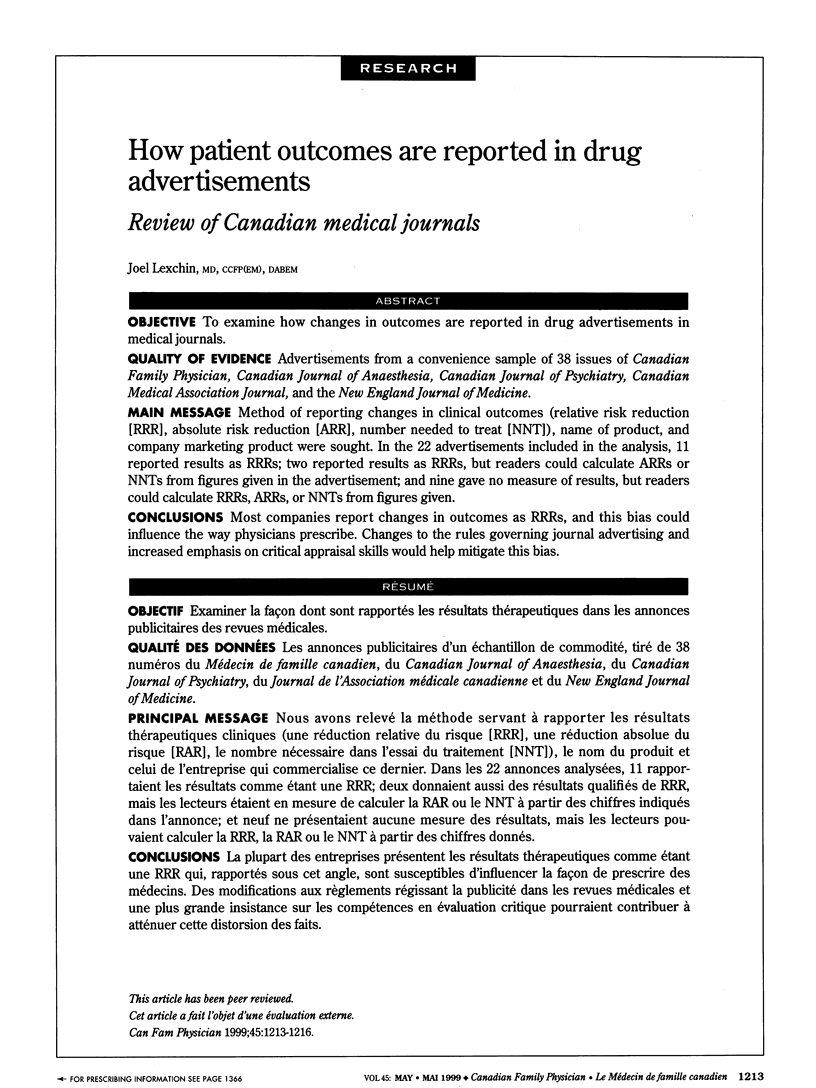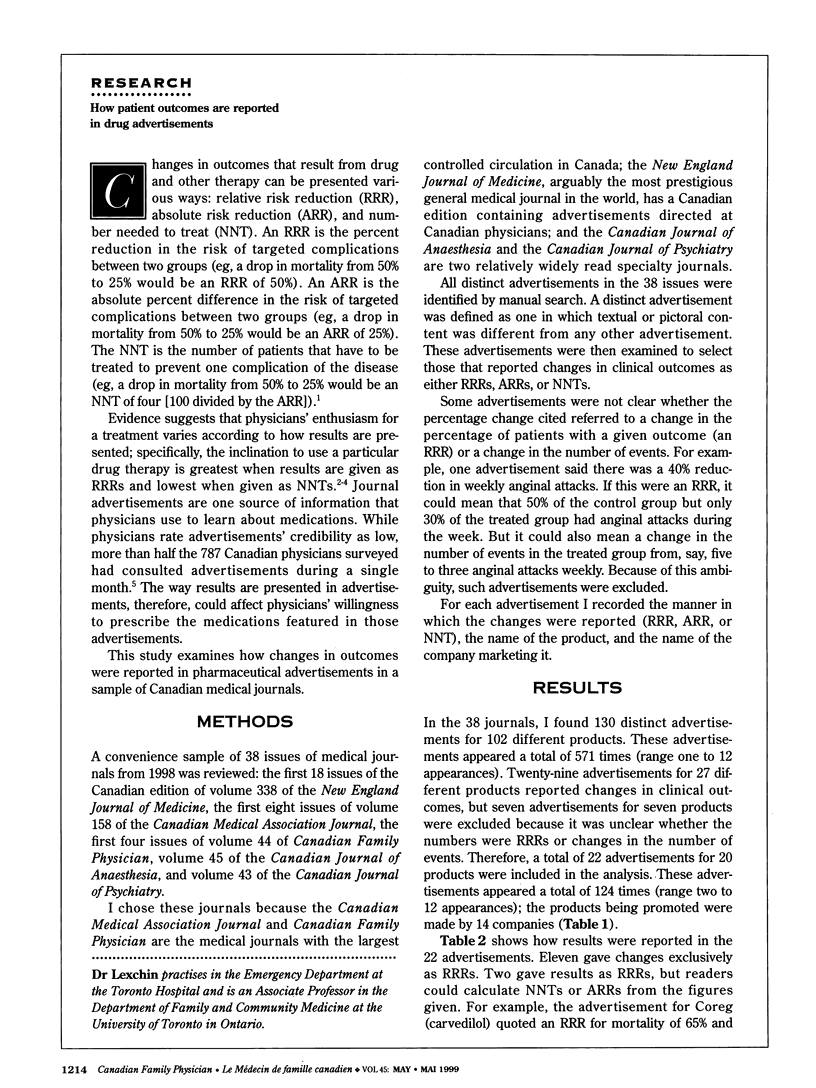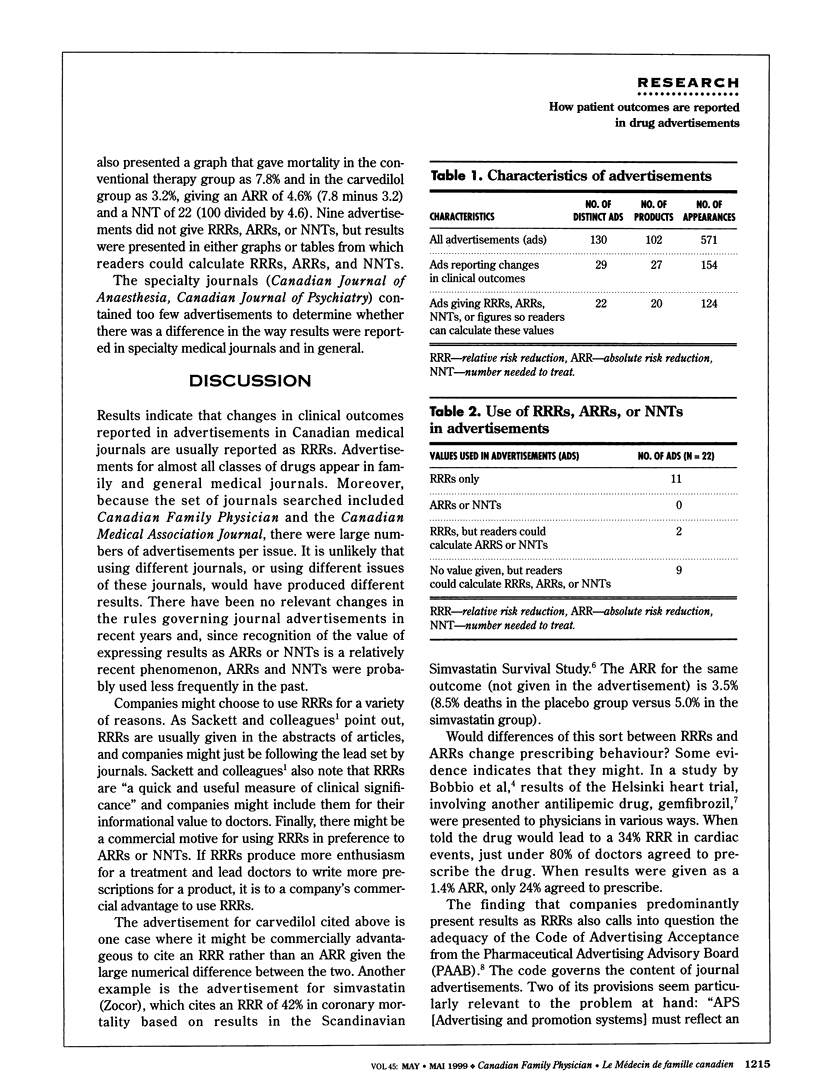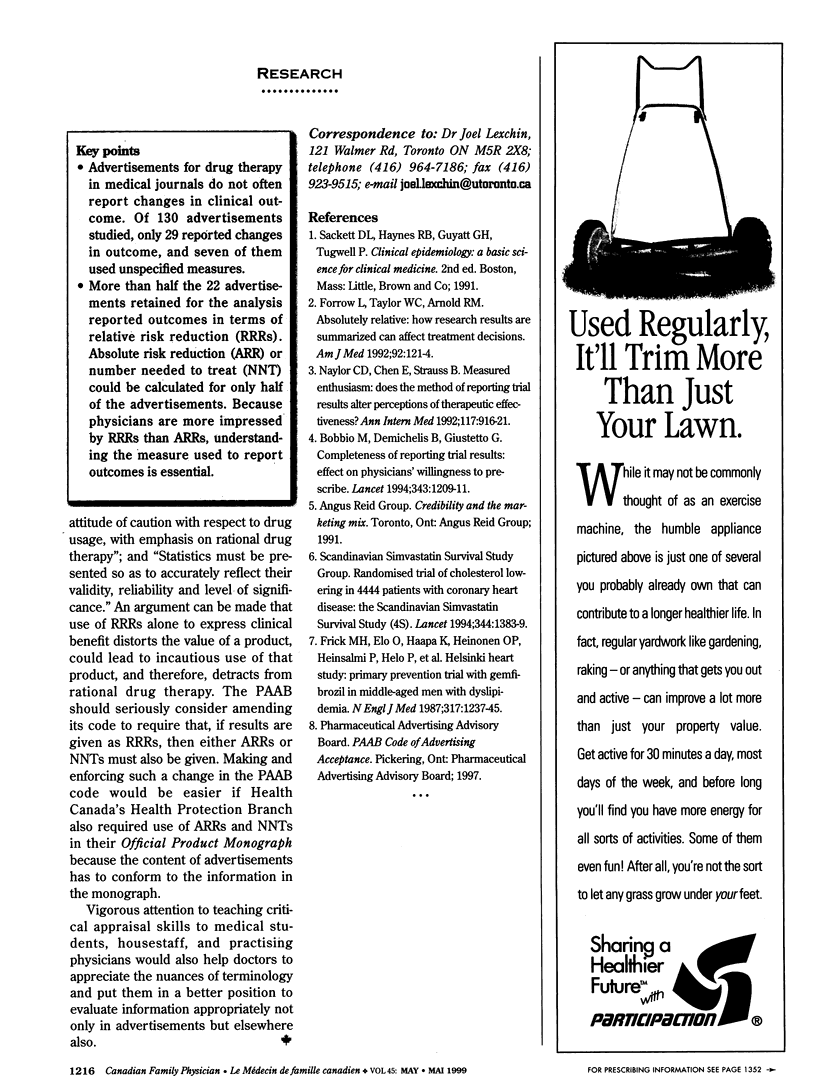Abstract
OBJECTIVE: To examine how changes in outcomes are reported in drug advertisements in medical journals. QUALITY OF EVIDENCE: Advertisements from a convenience sample of 38 issues of Canadian Family Physician, Canadian Journal of Anaesthesia, Canadian Journal of Psychiatry, Canadian Medical Association Journal, and the New England Journal of Medicine. MAIN MESSAGE: Method of reporting changes in clinical outcomes (relative risk reduction [RRR], absolute risk reduction [ARR], number needed to treat [NNT]), name of product, and company marketing product were sought. In the 22 advertisements included in the analysis, 11 reported results as RRRs; two reported results as RRRs, but readers could calculate ARRs or NNTs from figures given in the advertisement; and nine gave no measure of results, but readers could calculate RRRs, ARRs, or NNTs from figures given. CONCLUSIONS: Most companies report changes in outcomes as RRRs, and this bias could influence the way physicians prescribe. Changes to the rules governing journal advertising and increased emphasis on critical appraisal skills would help mitigate this bias.
Full text
PDF



Selected References
These references are in PubMed. This may not be the complete list of references from this article.
- Bobbio M., Demichelis B., Giustetto G. Completeness of reporting trial results: effect on physicians' willingness to prescribe. Lancet. 1994 May 14;343(8907):1209–1211. doi: 10.1016/s0140-6736(94)92407-4. [DOI] [PubMed] [Google Scholar]
- Naylor C. D., Chen E., Strauss B. Measured enthusiasm: does the method of reporting trial results alter perceptions of therapeutic effectiveness? Ann Intern Med. 1992 Dec 1;117(11):916–921. doi: 10.7326/0003-4819-117-11-916. [DOI] [PubMed] [Google Scholar]


